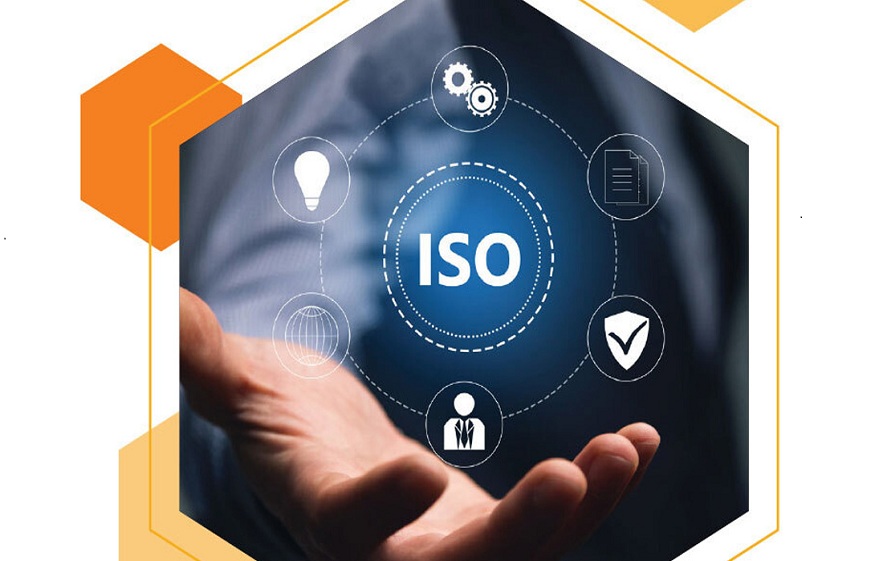Professional development in the present-day dynamic business scenario requires strategic skill improvement through effective training programs. ISO certified training is a revolutionary method of professional development that allows individuals and organizations to improve their quality standards and exhibit adherence to quality management. These professional training programs equip professionals with valuable inputs on internationally accepted quality standards that inspire organizational excellence. Through the incorporation of sophisticated learning methods and hands-on skill development processes, these programs enable professionals to emerge as innovative leaders who can efficiently navigate challenging and dynamic business environments.
-
Understanding ISO Certified Training Landscape
Contemporary businesses appreciate the pivotal significance of standardised training models. ISO compliant training provides managers with a model framework to pursue in-depth expert knowledge and validate skills in the various management systems. The programs educate participants to attain in-depth global quality standard understanding, hence enabling them to successfully apply the best practices to their respective domains. Additionally, the in-depth programmes offer strong training models to help professionals excel in a very competitive global marketplace.
-
Central Value Proposition of ISO Training
The strategic significance of ISO certified training goes beyond acquiring skills. The professionals who take part in such intensive training programs acquire deep knowledge of systematic practices that improve organizational performance. By learning international standards, the participants acquire a broader vision of quality management, risk reduction, and continuous improvement methods that lead to sustainable business success. Moreover, these training programs enable professionals to become change leaders in their organizations, promoting an excellence culture and strategic innovation.
-
Skill Enhancement and Career Progression
Experts who invest in ISO certified training open up multiple career growth possibilities. Such programs authenticate technical proficiency and reflect professional commitment to excellence. By earning globally accepted credentials, individuals make themselves assets in their organizations with the ability to spearhead quality improvement programs and introduce advanced management systems. These certifications also prove to be potent differentiators in labor markets and improve employability and prospects for leadership positions significantly.
-
Global Recognition and Standardization
ISO training programs provide unmatched worldwide recognition, bridging geographical and industrial divides. Trainees develop skills in conformity with international standards, making their skills relevant and portable across different professional settings. This standardization allows organizations to have consistent quality standards and build a culture of continuous improvement. The global applicability of these standards provides novel opportunities for professionals to work together and innovate across various sectors and cultural backgrounds.
-
Personal and Organizational Change
Extensive ISO training programs drive personal and organizational change. Experts acquire strategic thinking skills, improved problem-solving, and in-depth knowledge of systematic methods of quality management. Organizations enjoy enhanced operating efficiency, lower risks, and increased credibility through employees with internationally recognized standards training. These change programs also foster a culture of adaptability and continuous learning, which is essential for long-term success in evolving business situations.
- Knowledge Transfer and Practical Application
Successful ISO certified training extends beyond classroom learning, focusing on the practical application of learned knowledge. Participants take part in actual case studies, simulation exercises, and interactive learning activities that demystify intricate concepts into executable strategies. The methodology ensures that professionals are able to apply learned techniques in their work environments instantly. The experiential learning approach closes the gap between academic knowledge and real-world application, allowing for fast skill acquisition and instant organizational influence.
-
Industry-Specific Training Modules
Various industries necessitate specialized training methods that resonate with their own specific operational environments. ISO training courses provide sector-specific modules dealing with industry-specific challenges and compliance issues. Targeted programs facilitate professionals to develop sophisticated comprehension of quality management principles applicable to their own specific professional fields. With customized learning trajectories, these modules allow participants to acquire profound, contextually aligned insights that squarely address the distinctive operational and strategic challenges of their industry.
-
Economic and Strategic Benefits
Investment in ISO certified training is of great economic and strategic benefit to individuals and organizations. Trained personnel result in increased operational effectiveness, minimized error rates, and better organizational performance. The skills acquired through such programs facilitate effective risk management and contribute to sustainable business growth initiatives. The investments also result in long-term value creation by establishing a workforce that can spearhead innovation, sustain competitive edge, and adjust to fast-evolving market forces.
-
Technological Integration and Future Preparedness
ISO training programs of today integrate technology advancements and cutting-edge industry trends. The trainees are taught to utilize digital tools, data analytics, and innovative management methods. This proactive approach keeps professionals flexible and ready for changing business environments. Integrating the newest technological knowledge with conventional management techniques, these programs provide an inclusive learning experience that equips professionals to spearhead digital transformation initiatives.
.Continuous Learning and Development
ISO certified training fosters lifelong learning and personal development. There is a thrust to keep themselves abreast with changing international norms, technology upgradation, and best practices. By committing themselves to ongoing learning, professionals get to remain competitively capable amidst changing business contexts. This lifelong learning dimension renders these training schemes more than temporary certifications and changes them into extended professional development experiences and strategic self-development initiatives.
ISO 27001 Auditor Training: A Professional Odyssey
Professional training such as ISO 27001 auditor training offers experts higher-level skills in information security management. The focused training allows participants to learn extensive frameworks for information security risk identification, assessment, and mitigation. With in-depth learning modules, professionals acquire essential analytical skills necessary for performing thorough security audits and sustaining strong organizational defense mechanisms. The training also provides participants with the latest methodologies for dealing with emerging cybersecurity threats in a rapidly evolving digital environment
Conclusion
Professionals intent on transformative development should look no further than ISO certified training as a strategic business investment in one’s career direction. INTERCERT provides holistic training programs that focus on imparting world-class capability and expertise to individuals. With these global standards of competence, professionals become empowered to break new ground toward personal and corporate achievement. The carefully designed courses offer a career development strategy allowing participants to adopt leading-edge capability that is enormously sought after among global industries and professional networks.

